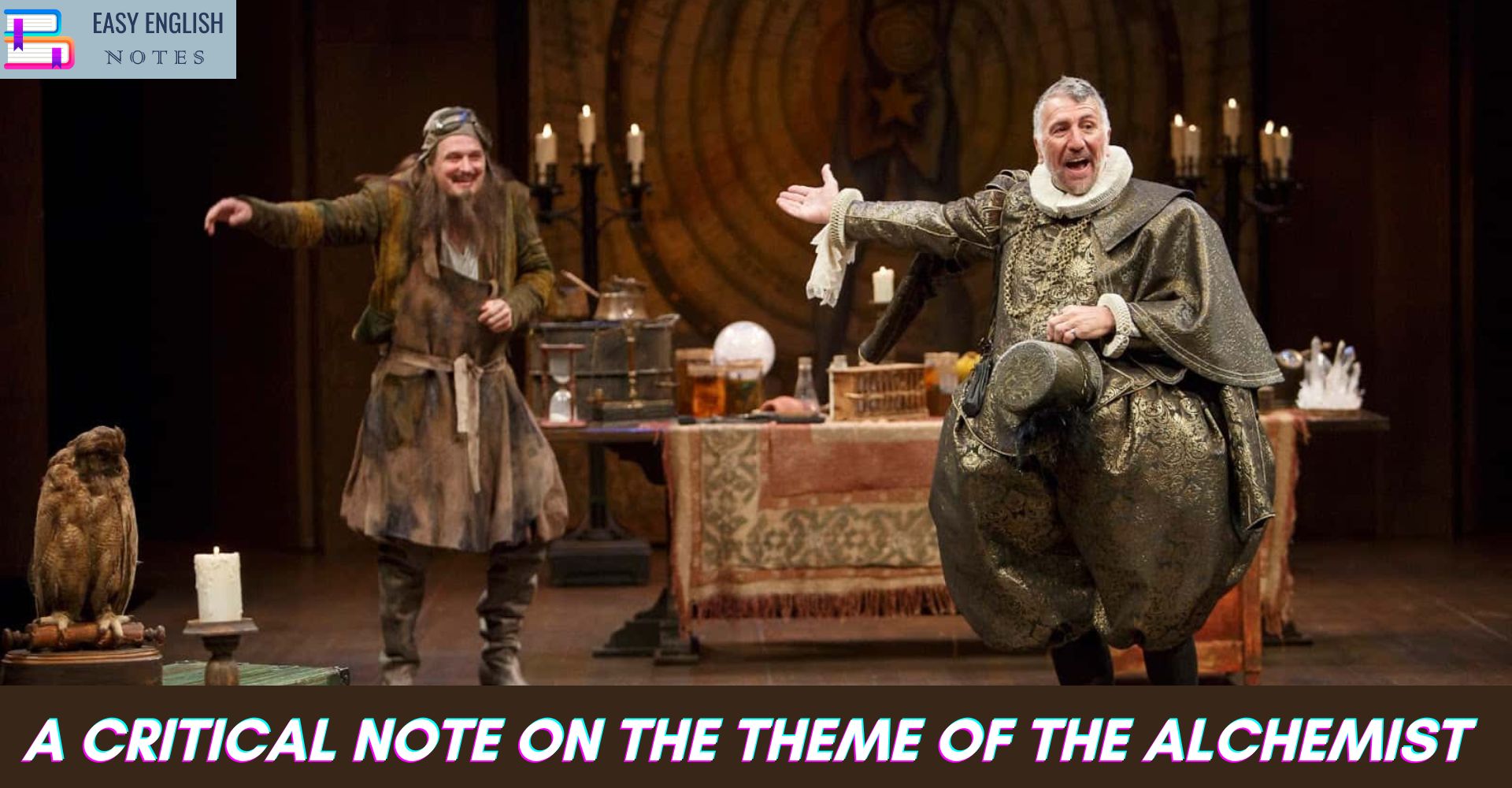The Alchemist is a play with wide scope. Commenting upon the themes of the play. V.A. Moffett Says, “In this play greed is treated as a folly rather than a vice. All the characters are motivated in varying degrees by degreed and self-interest but the dupes are satirized more than the rogues, for their willingness to believe in the dreams they are being sold. The rogues are not punished, as they are in Volpone: on the contrary the cleverest of the three is actually commended by authority. In a world in which values are turned upside down, it is better to be a clever rogue rather than fall a victim to what Surly calls that same foolish vice of honesty.
Greed is less to be condemned than lack of wit and the greatest sin of all is a failure to understand the nature of reality. The play can be seen as an exploration of various types of human greed.
The action of the play is based on the traditional beliefs of alchemy. On a deeper level, the same beliefs take on a symbolic value. The idea that all metals could be hanged into gold was still a potent force in the Jacobean age, when trade was expanding enormously. Within the play, The ‘gold’ sought by the dupes is non-existent. Subtle, introducing the greatest dreamer of them all, Sir Epicure Mammon, says:
“If his dream last, he’ll turn the age to gold.”
This is a reference to the traditional idea of gold as symbol of the highest virtue, seriously believed by true alchemists. Within the play however, since we are concerned with false alchemy’, all moral values are inverted and the quest for virtue becomes lost for all the things that money can buy.
Also Read :
- Compare Hamlet with Macbeth, Othello and other Tragedies
- A Short Note On The Use Of Imagery In Shakespeare’s Sonnets
- Prologue to Canterbury Tales – (Short Ques & Ans)
In the action of the play many apparent changes occur: the disguises are many and various. In the language religious terms are often used in a perverted sense, for example: “spirit’, ‘soul’, ‘sanguis agni’, (blood of the lamb) to emphasize the hypocrisy of Subtle and his friends. The moral virtues are exchanged for dishonesty, lust and self- interest. Sir Epicure Mammon thinks he can buy the virtue he does not possess; in a similar way Doll attempts to buy love. All the characters are so engrossed in chasing after something which is ephemeral, that they discard all true values, In alchemical terms Mercury (quick-silver) symbolizes wit, Venus (copper) love, the moon (silver) purity, and sun (gold) is the epitome of all virtues. Wit, love, purity are thus discarded in the fool’s search for gold. As well as representing virtues gold can be seen as a symbol of Avarice, so that in the world of the play true virtue is changed into the all-consuming vice of Greed.
Almost without exception the characters are pretending to be what they are not. Face appears in many disguises; Subtle claims to be a learned Doctor and is reallly a charalitan; Doll, a prostitute, appears as the queen of Fairy. The abusive epithets that they horal at each other in anger are balanced in other scenes by lifty titles such as “Royal Doll” and ‘noble Doctor’. Dapper is hailed as the nephew of the Queen of Fairy, Drugger is to be called to the scarlet, after all his exotic dreams of food and luxury, Mammon is finally reduced to thinking of becoming an itinerant preacher on a turnip cart.
Face, Subtle and Doll assume a different identity for each customer. Surly, the sceptic, appears as a Spanish don, and as such, he is ridiculed. His disguise is offered to Drugger and Face, but is finally assumed by Lovewit. In the last act the neighbours tell Lovewit what has been going on in his absence, but when contradicted by Face they immediately change their minds and agree that what he says is ‘Like enough’
At the end of the play Face and Lovewit come forward and stepping out of their roles, actually remind the audience that what they have seen was only a play. Now, after the light-hearted atmosphere of the play, comes the serious ‘message’-we are being asked to see ourselves in the characters whose folly has amused and delighted us.”
PLEASE HELP ME TO REACH 1000 SUBSCRIBER ON MY COOKING YT CHANNEL (CLICK HERE)











